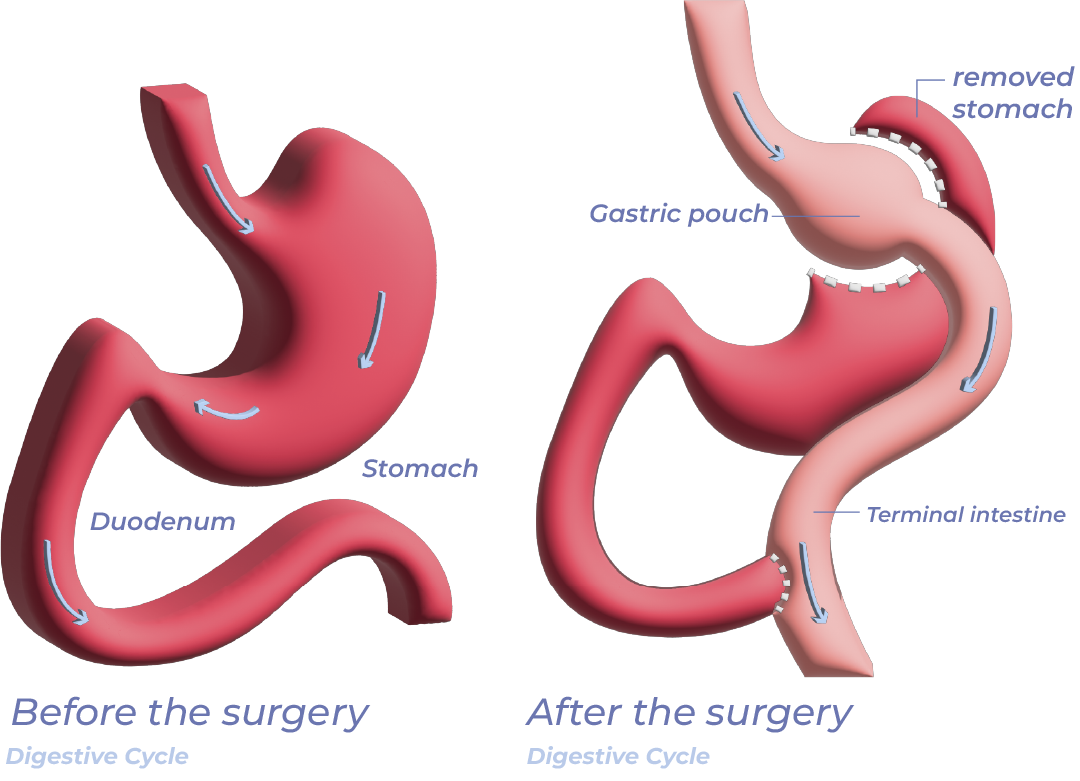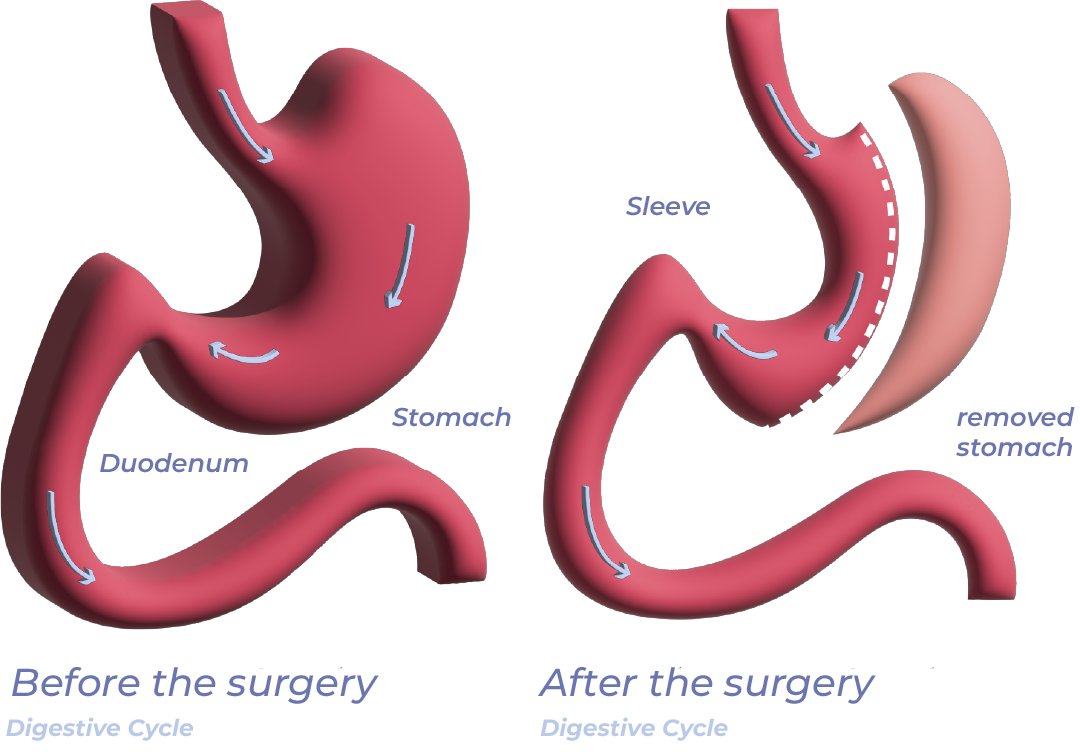Bariatric surgeries are surgical alternatives that help prevent health problems in people who are very overweight and who have found it difficult to lose weight with traditional methods.
Gastric sleeve is a bariatric surgery that reduces the size of the stomach by approximately 75%, with the aim of reducing the feeling of hunger and, therefore, reducing the amount of food eaten to feel satiated, thus facilitating the transition to new nutritional habits that allow you to lose weight.
How is the gastric sleeve performed?
There are two methods with which gastric sleeve can be performed:
- Open: Made through a large incision in the abdomen that allows access to the stomach. This method is used much less frequently by doctors, it is usually considered only when the patient has complications or had previous abdominal surgeries.
- Laparoscopic: With this method, the surgeon makes several small incisions in the abdomen, introducing a camera and other surgical instruments necessary to perform the operation.
During surgery, the greater curvature of the stomach is separated and removed. Then, it is stapled vertically and as a result the stomach is left in a shape that resembles a sleeve or elongated tube, hence the name.
The estimated time of surgery is 1 hour and after surgery, the patient must remain hospitalized for 24 hours.
Postoperative gastric sleeve
Abdominal pain, nausea and vomiting may be experienced during the first night. However, these symptoms disappear after a few days.
It is essential to follow a strict liquid diet during the first weeks after surgery, gradually progressing to soft foods until finally being able to consume a normal diet when the stomach has healed. This must be accompanied by vitamin and mineral supplements, as well as a physical activity plan that will go from less to more until final recovery.
Advantages and disadvantages of gastric sleeve
The gastric sleeve brings obese patients a series of benefits, which are:
- Significant weight loss: It has been shown that excess weight is significantly reduced, up to 60% and 70%.
- Health improvement: It is a procedure that helps, improves or reverses obesity-related diseases, such as diabetes, high blood pressure and sleep apnea. In addition, it has been proven that it can help improve blood sugar control.
- Good nutrient absorption: It does not cause nutrient malabsorption and lifelong vitamin supplementation is not necessary, only during the recovery process.
- Little invasive: It is a little invasive surgery and with the laparoscopic technique it is very safe for the patient.
- Irreversible procedure: The gastric sleeve is an irreversible procedure, so these changes in the stomach are permanent and should only be accompanied by good eating habits.
- Very low rate of medical complications: There are very few cases in which patients who undergo this procedure present complications.
However, like any surgical procedure, there are also disadvantages or risks that surgery can bring. Some of the disadvantages of gastric sleeve are as follows
- Greater stomach sensitivity: It is important to maintain good eating habits, because a small stomach is more sensitive to processed or lightly chewed foods. It is recommended to maintain healthy diets and eat slowly, chewing food well to avoid digestive discomfort.
- Respect the feeling of satiety of the stomach: Once this surgery is done, it is essential to respect the feeling of satiety that the patient has when eating and stop eating so there is still food left on the plate. This is what will keep the digestive system healthy, as well as help avoid the few possibilities that exist of the rebound effect.
For whom is the gastric sleeve recommended?
The gastric sleeve is ideal for patients with a body mass index (BMI) between 25, 30 or greater, who suffer from obesity-related diseases, such as diabetes, hypertension, sleep apnea. It can be performed from 12 to 75 years of age, after medical evaluation. As it is a stomach-reducing operation, it will especially help patients who are used to eating large amounts of food.
Gastric Sleeve: Bariatric Procedures
Contact our team to learn more about gastric sleeve as a bariatric procedure. We are responsible for providing you with the best personalized care, ensuring that you have a safe surgical procedure, with professional support during your recovery and the transition to your new eating habits.




